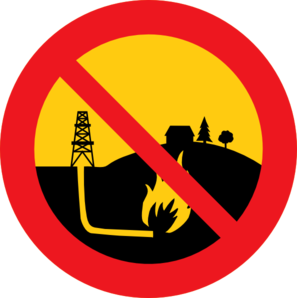NATO Accuses Moscow of Covertly Funding Western Anti-Fracking Activists

At a June 19 speaking event at London’s Chatham House, North Atlantic Treaty Organization (NATO) secretary-general Anders Fogh Rasmussen claimed the Russian government is covertly working to discredit hydraulic fracturing (“fracking”) in the west from afar.
“I have met allies who can report that Russia, as part of their sophisticated information and disinformation operations, engaged actively with so-called non-governmental organisations — environmental organizations working against shale gas — to maintain European dependence on imported Russian gas,”
said Rasmussen, the former Prime Minister of Denmark.
Rasmussen’s comments were relayed to the press by someone in attendance who apparently broke the “Chatham House Rule” by telling outsiders about the content of a Chatham House meeting.
 But Rasmussen left out some key context from his presentation, which he said “is my interpretation” and did not further elaborate on his “disinformation operations” comments.
But Rasmussen left out some key context from his presentation, which he said “is my interpretation” and did not further elaborate on his “disinformation operations” comments.
That is, while powerful actors have claimed on multiple occasions that western-based anti-fracking activists are funded by the Kremlin, no one has ever documented such a relationship in the form of a money paper trail.
Meme with Wings
Rasmussen’s allegation that western “fracktivists” are or might be funded by the Kremlin is a meme with wings.
In a June 2010 email revealed by Wikileaks, private intelligence firm Stratfor (shorthand for Strategic Forecasting, Inc.) speculated that Josh Fox, director of “Gasland” and “Gasland: Part II”, might be funded by the Russian government or the coal industry. According to a January 2010 email, Stratfor’s “biggest client” is the American Petroleum Institute.
Stratfor published a white paper titled “Shale Gas Activism,” an analysis of anti-fracking opposition groups and leaders, in December 2009.
Emails show Stratfor sent the white paper to Stanley Sokul, then-ExxonMobil corporate issues senior advisor and now XTO Energy’s manager of public and government affairs. Sokul formerly served as chief of staff and general counsel for the White House Office of Science and Technology Policy under President George W. Bush.
Further, in the industry-funded documentary film “FrackNation,” climate change denier James Delingpole also stated that anti-fracking activists are likely funded by the Kremlin (beginning at 2:30 below).
Most recently, climate change skeptic Bjorn Lomborg — whose Copenhagen Consensus Center was recently exposed by DeSmogBlog’s Graham Readfearn — also recently wrote that he concurred with his fellow Dane Rasmussen’s assessment.
“The accusations do not seem too far-fetched. Russia is very keen on dissuading Europe from exploiting its shale reserves,” Lomborg wrote in Forbes. “Moscow’s goal clearly is to keep the EU dependent on Russia.”
Memes Work
While in reality, U.S. oil and gas companies maintain close ties with Russia — including in the fracking sphere — the meme brought to the forefront again by Rasmussen is the one that has caught much more fire.
Originally conceptualized in scholar Richard Dawkins‘ 1976 book “The Selfish Gene,” one conclusion reigns supreme: memes work and can have a major impact.
For example, Occupy Wall Street’s “We are the 99-percent” is a meme. So too is “Global warming is a hoax.”
“In my opinion, the problem is not with the meme concept itself, but with some of the ways in which it has been used, and especially those that undermine the role of agency in [deploying memes],” Limor Shifman — senior lectureer at the Department of Communication and Journalism at the Hebrew University of Jerusalem and author of the book, “Memes In Digital Culture“ — said in a recent interview on her book.
With loud megaphones and ongoing geopolitical tensions between the U.S. and Russia with no end in sight, one can rest assured Rasmussen will not be the last one to repeat this meme, just as he was not the first.

